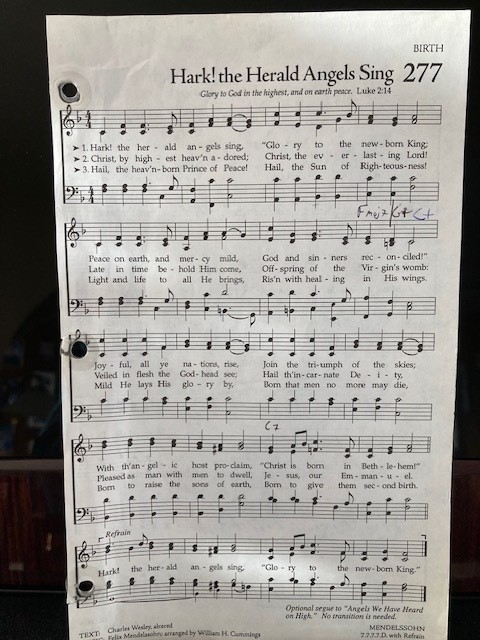
But the angel said to them, "Do not be afraid. I bring you good news of great joy…Today in the town of David a Saviour has been born to you; he is Christ the Lord (Luke 2:10,11).
Hark how all the welkin rings. Glory to the
King of Kings.
So goes one of
our favourite Christmas carols.
At least that
was the original version.
Charles Wesley – the author of 6500 hymns – included this carol in a collection of hymns and poems from 1739.
First, the
obvious question: what on earth is the
welkin, anyway? Well, it’s actually not on earth, at all.
In Middle
English, the term referred to the clouds, skies, or heavens.
The renowned preacher George Whitfield – famous for preaching during the Great Awakening in New England during the 1730s and 40s, amended the carol apparently with Wesley’s implied consent.
He discarded welkin in favour of “herald angels” and used the term “newborn King”, thus amending the first couplet as follows:
Hark the herald angels sing, Glory to
the newborn King.
Other changes were made to the lyric subsequently amending Wesley’s line:
Pleas'd as Man with Men t' appear, JESUS, our Immanuel here
by reducing
the meter to what we know better:
Pleased as Man with men to dwell,
JESUS our Immanuel.
When Wesley
originally published the poem, it had not yet been set to music. If it was to
be sung, Wesley decreed that slow, solemn music would most appropriately carry
the words.
He would not
have been pleased with our contemporary carol.
The music so familiar to carollers today was created by the German composer Felix Mendelssohn (famous for the Wedding March often heard at the conclusion of traditional weddings) and matched to Wesley’s poem 100 years after it was published.
It is lively, joyous, celebratory, animated and dynamic – all characteristics Wesley would likely have rejected.
But the beloved
carol will be forever remembered for its elegant poetry and compelling
theological truth:
Christ by highest
heaven adored, Christ the everlasting Lord.
Late in time behold Him come, Offspring of a virgin’s womb
Veiled in
flesh, the Godhead see, Hail the Incarnate Deity!
Pleased as Man
with men to dwell, Jesus our Immanuel.
Hark! the herald angels sing, “Glory to the newborn King”.
~this post last appeared in December 2020